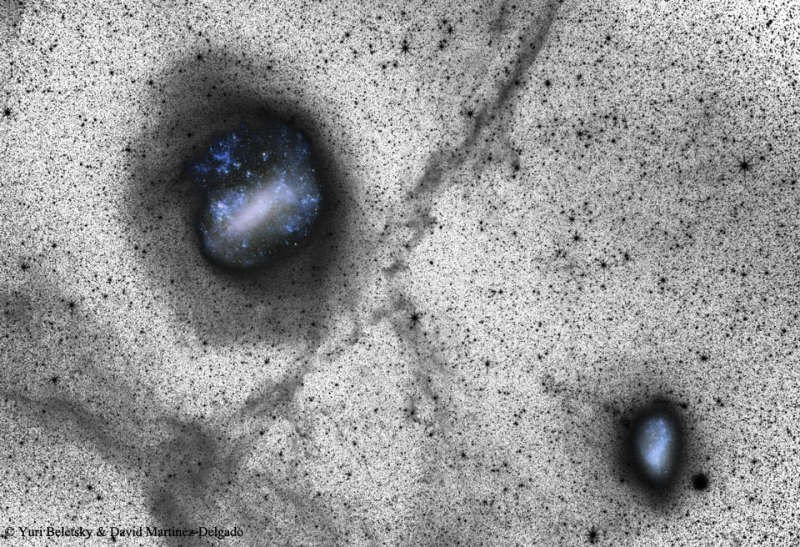
|
Credit & Copyright: Yuri Beletsky
(Carnegie
Las Campanas Observatory,
TWAN) & David Martinez-Delgado
(U. Heidelberg)
Explanation:
Did the two most famous satellite galaxies of our Milky Way Galaxy once collide?
No one knows for sure, but a
detailed inspection of deep images like that
featured here give an
indication that they have.
Pictured, the Large Magellanic Cloud (LMC) is on the
top left and the
Small Magellanic Cloud (SMC) is on the bottom right.
The surrounding field is monochrome color-inverted to
highlight faint star streams, shown in gray.
Perhaps surprisingly, the
featured research-grade image was compiled with small telescopes to cover the
large angular field -- nearly 40 degrees across.
Much of the faint nebulosity is
Galactic Cirrus clouds of thin dust in our own Galaxy,
but a faint stream of stars does appear to be extending from the
SMC toward the
LMC.
Also, stars surrounding the LMC appear asymmetrically
distributed, indicating in
simulations that they could well have been pulled
off gravitationally in one or more collisions.
Both the LMC and the SMC are visible to the unaided eye
in southern skies.
Future telescopic
observations and computer simulations are sure to continue in a continuing effort
to better understand the history of
our Milky Way and its surroundings.
|
January February March April May June July August September October November December |
| ||||||||||||||||||||||||||||||||||||||||||||||||
NASA Web Site Statements, Warnings, and Disclaimers
NASA Official: Jay Norris. Specific rights apply.
A service of: LHEA at NASA / GSFC
& Michigan Tech. U.
Based on Astronomy Picture
Of the Day
Publications with keywords: magellanic clouds
Publications with words: magellanic clouds
See also:
